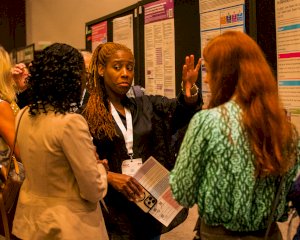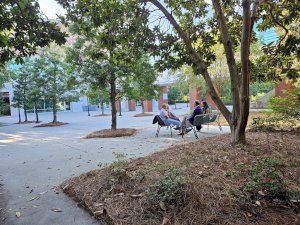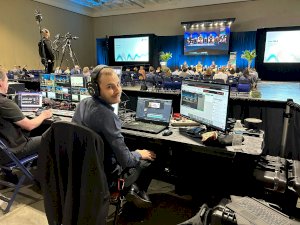
We are all acutely aware of the climate crisis and our role in minimising it. As a Society operating across the globe and hosting annual, in-person Congresses, we know we have to work harder than others to reduce our environmental footprint.
Since 2022, our Sustainability Committee has been working to make both the WMS and our Congresses more sustainable. The Committee, chaired by Gabriele Siciliano and Teresa Gerhalter, has held several meetings and is coordinating a WMS-wide approach to sustainability.
In the meantime, we have already been taking action.

We have removed printed programmes and journals from our Congresses, providing the information to attendees digitally instead. We have also done away with our delegate bags and gifts and replaced them with our Legacy Tokens scheme, so instead of increasing our environmental footprint, we are supporting local good causes financially. These steps alone have made a big difference to the amount of resources we use at each Congress.

We also specify that teams bidding to host future WMS Congresses include an environmental impact section in their application. Our hosts in Helsinki for WMS 2028 have promised it will be the “greenest Congress ever” and we’re already working with the venues there to see what we might be able to learn from them and apply to other meetings.
On the ground, we rely on local suppliers to reduce the travel miles of the things we use. We also insist on local food and drink rather than imported produce where possible to reduce food miles and have increased the amount of vegetarian food available because of the environmental impact of meat production which in turn compliments our accessibility efforts. We try to closely anticipate how much food we need, but for times when there are leftovers, we partner with local food waste organisations to make sure the food goes to people who need it.
This year, for the first time, we are also introducing an exhibitor's incentive to be more environmentally sustainable. We are encouraging exhibitors to bring reusable stands and will be asking attendees to vote for the most environmentally friendly exhibitor.

And it’s not just our Congresses where we’re reducing our travel footprint. The Executive Board has also moved to more virtual meetings. Of the four annual meetings, only one is now held in-person and that’s the meeting that takes place at the annual Congress. All other meetings take place online.
If you have ideas for how we can continue to make the WMS more environmentally sustainable, please contact us with your suggestions or consider joining the Sustainability Committee.